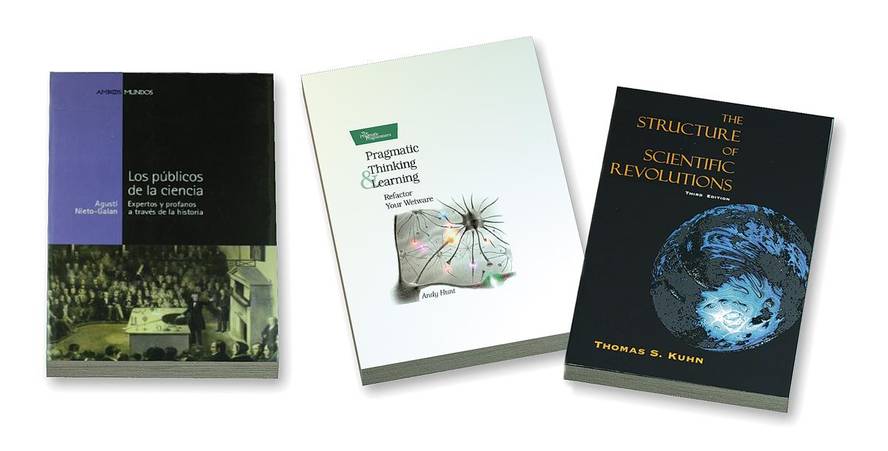Recommendations from readers
Arantxa Iraola’s recommendation is the book “The Public of Science: Experts and Profane Throughout History”, written by Agustí Nieto-Galán. Nieto Galán analyzes the role of science within society and concludes that it has been marginalized in the cultural sphere. This study is done through people interested in knowing science: Science audiences, a very diverse group that plays an important role in scientific outreach. "It's an interesting gateway to getting into the web of scientific outreach," says Iraola.
Aitor Olano has recommended two books. The first, Pragmatic Thinking and Learning, by writer Andy Hunt. "The book is not focused on disclosure, it explains some things, but it tells what it is and how to do it," explains Olano. In principle it is a book written for programmers, although their ideas can be extended to many other areas. Hunt explains how the brain works and relates this information to the challenge of learning new things. What is the best way to cope with the learning process? How to apply pragmatic thinking in this process? How to choose suitable and concrete objectives? How can personal capacity be maximized? Pragmatic Thinking and Learning answers these questions.
The second book recommended by Olano is The Structure of Scientific Revolutions, by the writer Thomas Kuhn. It is a reflection on the great changes that occur when advancing science. And it also analyzes how scientists themselves adopt and accept these changes. Change is not evolutionary," says Kuhnek, "it is not progressive. However, there are long variations and then great revolutions.






